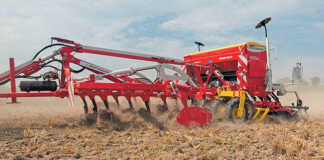
As I noted in a previous column (FW, 27 July), a study led by US-based neuroscientist Paul Zak shows that a characteristic shared by all outstanding organisations is the high level of trust among their staff.
Moreover, this trust always starts at the top.
The converse is true too; lack of trust by and in management, like cold air, sinks quickly throughout the organisation.
Managers who build great trust are invariably good listeners, communicate clearly and often, and are inveterate optimists. They always talk about ‘we’, not ‘I’, and share credit generously. They readily admit their errors, take responsibility for failure, and are quick to apologise. And they keep promises and get back to people if they say they will.
The fruits of trust
Zak and his colleagues found that organisations led by managers with these personal characteristics tend to create a highly motivating environment, where the following is seen:
- Excellence is widely acknowledged and recognised: This is often done in public, even to the point where the employee’s family is included in the communication or event at which the credit is acknowledged.
- Job targets are agreed and set at challenging, but achievable, levels: Unreasonable targets breed demotivation. Successful managers also revise targets in the event of unforeseen opportunities or difficulties.
- Managers delegate the result required, not how the job should be done: In other words, people are allowed wide discretion with how to carry out the job. The emphasis is on getting the job done, rather than the method used to get there. Also, wherever possible, employees are permitted to choose which project they wish to work on, thereby matching their own preferences and skills with the job required.
- Employees are involved in developing strategy and setting goals for the company: They are kept fully informed about progress towards these goals, to the point that information which would be considered ‘confidential’ in many companies is shared. They are trusted!
- Trust is given the time it needs to develop: Building trust between people takes more time than that provided during formal working hours. High-trust companies are aware of this and create opportunities outside of working hours for employees to build personal relationships with each other.
- Each and every employee has a personal and professional development plan to suit his or her aspirations: This is not the product of a meaningless tick-box template, but the result of a sincere and open personal discussion between boss and subordinate.
- Managers in high-trust organisations are aware of their own weaknesses and often ask subordinates for advice and help: If this leads to success, the employee concerned is given liberal public credit for his or her contribution
It takes work, but it’s certainly worth it!
Building a high-trust organisation is not a simple task. However, given the potential power that high trust levels bring to a business, it seems to me top managers worth their salt would want to get to know the level of trust that exists in them and their organisation.
While the foregoing personal traits and organisational characteristics are not exhaustive, use them with some of your own to assess how well you are doing at building trust.
As the ancient Chinese philosopher, Lao Tzu, said, “If you don’t trust people, people will not trust you.”
And if this is the case in your business, you cannot hope to be a great manager, or build a great team.
Peter Hughes is a business and management consultant with 30 years’ farming experience.










